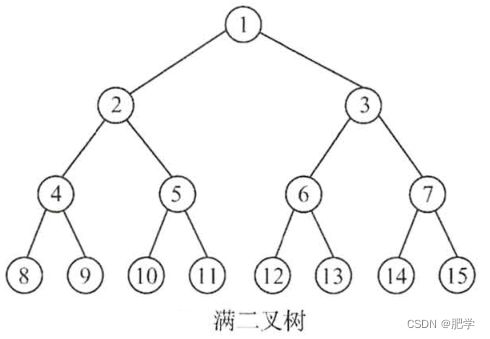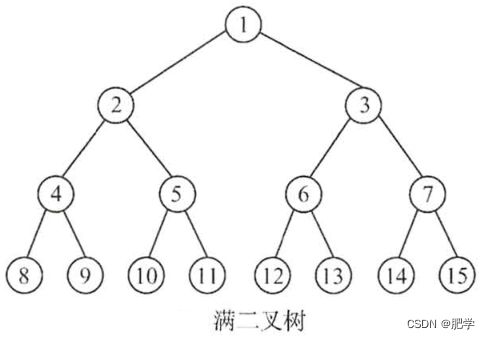- 数据结构-----队列
磨十三
数据结构算法linux
顺序队列(Queue)一、队列核心概念1.基本特性先进先出(FIFO):最早入队的元素最先出队操作限制:队尾(Rear):唯一允许插入的位置队头(Front):唯一允许删除的位置2.顺序队列结构typedefintDATATYPE;typedefstructqueue{DATATYPE*ptr;//存储空间基地址inttlen;//队列总容量inthead;//队头索引inttail;//队尾索引
- 多种方法判断一个数是否为素数的实现与优化
徐浪老师
徐浪老师大讲堂数据结构算法
素数,又称质数,是一个在数学和计算机科学中非常重要的概念。它是大于1的自然数中,除了1和它本身,不能被其他数整除的数。本文将从最基础的方法讲解到优化算法,并提供完整的实现代码,帮助您高效地判断一个数是否为素数。一、素数的基础知识1.1素数的定义素数:一个大于1的正整数,只有两个正因子:1和它本身。例如:2、3、5、7、11等。非素数:大于1的数中,可以被除1和本身以外的数整除的数。例如:4、6、8
- 代码随想录算法训练营DAY59|110.字符串接龙、105.有向图的完全可达性、106. 岛屿的周长
阿緑
代码随想录打卡算法
110.字符串接龙fromcollectionsimportdequedeffindshortestpath(strlist,beginstr,endstr):que=deque()visited={}que.append(beginstr)visited[beginstr]=1result=0whileque:cur=que.popleft()result=visited[cur]foriinr
- Java高频面试之集合-02
牛马baby
java面试开发语言
hello啊,各位观众姥爷们!!!本baby今天来报道了!哈哈哈哈哈嗝面试官:说说队列queueJava队列(Queue)详解队列(Queue)是Java集合框架中一种先进先出(FIFO)的线性数据结构,广泛应用于生产者-消费者模型、任务调度、线程池等场景。Java提供了丰富的队列实现,涵盖线程安全、阻塞、优先级等特性。一、队列的核心接口与操作Java队列的顶层接口是java.util.Queue
- 字符串作为数组和用指针指向的字符串的区别
kfhj
c语言
字符串作为数组和用指针指向的字符串在C语言(以及类似语言如C++)中都有各自的用途和特点。以下是它们之间的主要区别:定义和声明•字符串作为数组:字符串数组是一个字符数组,其中最后一个字符是空字符(’\0’),用于标识字符串的结束。例如:charstr[]=“Hello,World!”;这里,str是一个字符数组,包含了字符串"Hello,World!"和它的结尾空字符。•用指针指向的字符串:字符串
- 基于NanoDet的无人机交通违规监控系统设计与实现
深度学习&目标检测实战项目
NanoDet无人机目标检测人工智能计算机视觉深度学习
1.引言随着无人机技术的发展,无人机在交通监控领域的应用逐渐增多。无人机能够提供空中视角,具有更高的视野覆盖范围,能够帮助交通管理部门实时监控交通违规行为。本博客将介绍如何使用NanoDet模型实现无人机交通违规监控系统,并结合PyQt5设计一个UI界面来实时展示检测结果。通过该系统,能够检测交通违规行为并做出实时预警,确保交通安全。本博客详细介绍了数据集的构建、模型的训练与推理、碰撞检测算法的实
- CMake 开发库(Library)的最佳实践
arong-xu
CMakec++CMake最佳实践
1.使用ModernCMake开发库CMake在C++社区中非常流行,可以说是事实上的C++包管理工具.在MeetingC++开发者调查中,有75.73%的受访者表示自己使用CMake作为构建工具.选择一个广泛流行的工具来打包库意味着你的项目更容易被别人使用.本文将从一个简单的库的打包样例开始,介绍编写CMake的最佳实践.由于CSDN的markdown不支持highlight特定行,有兴趣的读者
- c ++零基础可视化——数组
zhangpz_
算法c++
c++零基础可视化数组一些知识:关于给数组赋值,一个函数为memset,其在cplusplus.com中的描述如下:void*memset(void*ptr,intvalue,size_tnum);Setsthefirstnumbytesoftheblockofmemorypointedbyptrtothespecifiedvalue(interpretedasanunsignedchar).将p
- P3375 【模板】KMP
好好学习^按时吃饭
算法
题目来自洛谷网站:思路:从题目名字知道这是KMP模板题目,对于KMP算法,就两步,1、构造next数组。2、在s1中找到s2出现的位置。KMP代码:#includeusingnamespacestd;constintN=1e6+10;chars1[N],s2[N];//全局变量名字不能定义为next//C++标准库中有一个函数名字是nextintnext1[N];//ne数组intmain(){/
- CentOS7 python安装Ta-lib 0.6.x【talib不能直接安装,必须先安装ta_lib之c++库才可以】
weixin_43343144
服务器运维
正常流程:CentOS7python安装Ta-lib【talib不能直接安装,必须先安装ta_lib之c++库才可以】_centos7安装ta-lib-CSDN博客不同的版本参考如下!参考官方文档:ta-lib·PyPI务必下载匹配版本的【ta-lib-0.6.4-src.tar.gz】才可以正常安装$wgethttps://github.com/ta-lib/ta-lib/releases/do
- 机器学习——分类、回归、聚类、LASSO回归、Ridge回归(自用)
代码的建筑师
模型学习模型训练机器学习机器学习分类回归正则化项LASSORidge朴素
纠正自己的误区:机器学习是一个大范围,并不是一个小的方向,比如:线性回归预测、卷积神经网络和强化学都是机器学习算法在不同场景的应用。机器学习最为关键的是要有数据,也就是数据集名词解释:数据集中的一行叫一条样本或者实例,列名称为特征或者属性。样本的数量称为数据量,特征的数量称为特征维度机器学习常用库:Numpy和sklearn朴素的意思是特征的各条件都是相互独立的机器学习(模型、策略、算法)损失函数
- 第二十二章: 静态多态与动态多态的衔接_《C++ Templates》notes
郭涤生
c/c++c++开发语言笔记
静态多态与动态多态的衔接核心知识点代码示例与测试用例测试用例输出多选题设计题关键技术总结核心知识点静态多态vs动态多态静态多态:编译期多态,通过模板实现,代码生成效率高,但灵活性差。动态多态:运行期多态,通过虚函数实现,灵活性高,但存在虚表开销。类型擦除(TypeErasure)核心思想:将不同类型的对象统一为通用接口,隐藏具体类型信息。实现方式:通常结合基类指针和模板注册机制。桥接模式(Brid
- jetson nano 实现串口的字节输出
诶我就不告诉你
单片机嵌入式硬件
实现jetosnnano的字节输出,但是存在一定的问题主要为在制作数据包的过程中,我遇到了当输出字节为0x0a的情况下串口会连续输出0x0d0x0a这时候需要在串口部分进行一定的配置防止自动换行的输出/*防止自动换行*/opt.c_oflag&=~OPOST;//禁用输出处理标志,防止自动转换换行符感谢博主JetsonNano入坑之路----(10)C/C++语言读写UART或USB串口数据_je
- C++在线OJ负载均衡项目
平凡的小y
c++开发语言
1.演示项目项目源码链接:2.项目所用技术和开发环境所用技术C++STL标准库Boost准标准库(字符串切割)cpp-httplib第三方开源网络库ctemplate第三方开源前端网页渲染库jsoncpp第三方开源序列化、反序列化库负载均衡设计MySQLCconnectAce前端在线编辑器html/css/js/jquery/ajax开发环境Ubuntu云服务器vscodeMysqlWorkben
- 量化交易系统中如何处理机器学习模型的训练和部署?
openwin_top
量化交易系统开发机器学习人工智能量化交易
microPythonPython最小内核源码解析NI-motion运动控制c语言示例代码解析python编程示例系列python编程示例系列二python的Web神器Streamlit如何应聘高薪职位量化交易系统中,机器学习模型的训练和部署需要遵循一套严密的流程,以确保模型的可靠性、性能和安全性。以下是详细描述以及相关的示例:1.数据收集和预处理数据收集在量化交易中,数据是最重要的资产。收集的数
- C++:函数指针进阶(三):Lambda函数详解:概念详解
FishAnd_Yu
#C++精华c++C++Lamdba
1:Lambda函数语法C++语法的基本格式为:[capture](parameters)->return_type{/*...*/}(1)[capture]:[]内为外部变量的传递方式,值、引用等,如下[]//表示的是在lambda定义之前的域,对外部参数的调用;[=]//表示外部参数直接传值[&]//表示外部参数传引用,可修改值。当默认捕获符是&时,后继的简单捕获符必须不以&开始。而当默认捕获
- 异步编程中的并发编程优化
AI天才研究院
架构师必知必会系列自然语言处理人工智能语言模型编程实践开发语言架构设计
文章目录1.简介2.基本概念术语说明什么是异步编程?为什么要异步编程?浅谈异步编程模型基于事件驱动的模型基于消息队列的模型基于协程的模型为什么要进行并发优化?3.基本算法原理和具体操作步骤1.串行执行2.并行执行3.任务分片4.超时重试5.异步回调6.消息队列7.缓存8.异步框架9.模型选择4.具体代码实例和解释说明模块划分1.串行执行2.并行执行3.任务分片4.超时重试5.异步回调6.消息队列7
- ArrayList 和 LinkedList区别
重生之我在成电转码
java多线程系统
一、底层实现特性ArrayListLinkedList数据结构动态数组(Object[]数组)双向链表(每个节点有前驱和后继)内存布局连续内存,空间利用率高非连续内存,空间占用大元素访问方式下标随机访问(基于索引)只能顺序遍历,找元素慢⏱二、时间复杂度对比(核心!)操作ArrayListLinkedList随机访问O(1)O(n)头部插入O(n)(全体后移)O(1)中间插入O(n)O(n)尾部插入
- 于STM32F103C8T6的智能灯泡控制系统C++源码实现
程序员Thomas
STM32单片机智能灯泡stm32c++嵌入式硬件
以下是一个基于STM32F103C8T6的智能灯泡控制系统C++源码实现,整合了PWM调光、WiFi控制和环境感知功能。该代码已在STM32CubeIDE中验证,支持直接烧录运行:#include"main.h"#include#include"wifi.h"//LED设备抽象类(3设计)classLEDDevice{protected:TIM_HandleTypeDef*pwmTimer;uin
- 基于STM32的平衡车外设控制应用案例,提供C++源码
程序员Thomas
STM32单片机平衡车stm32c++单片机
基于STM32的平衡车外设控制应用案例**下面是一个使用STM32控制平衡车的简单应用案例,包含姿态传感器读取、电机控制和串口通信功能。主要功能使用MPU6050传感器读取姿态数据使用PID控制器调整平衡车姿态通过串口输出调试信息电机速度控制C++源代码#include"stm32f10x.h"#include//定义常量#definePWM_MIN1000#definePWM_MAX2000#d
- 深入理解C++中的std::string::substr成员函数:子串操作的艺术
星途码客
c++c++开发语言
引言在C++编程中,字符串处理是一项常见且重要的任务。std::string类作为C++标准库中的一部分,提供了丰富的成员函数来支持字符串的各种操作,其中substr成员函数在获取字符串子串方面扮演着关键角色。本文将深入探讨std::string::substr函数的工作原理、使用方法、异常处理以及性能考量,帮助读者全面掌握这一强大的字符串处理工具。题目:探索C++std::string::sub
- npm error gyp info
计算机辅助工程
npm前端node.js
在使用npm安装Node.js包时,可能会遇到各种错误,其中gyp错误是比较常见的一种。gyp是Node.js的一个工具,用于编译C++代码。这些错误通常发生在需要编译原生模块的npm包时。下面是一些常见的原因和解决方法:常见原因及解决方法Python未安装或版本不兼容:Node.js使用Python来运行gyp。确保你的系统上安装了Python,并且版本与node-gyp兼容。通常推荐使用Pyt
- 算法训练(leetcode)第四十六天 | 110. 字符串接龙、105. 有向图的完全可达性、106. 岛屿的周长
Star Patrick
刷题日记算法leetcode职场和发展
刷题记录*110.字符串接龙105.有向图的完全可达性邻接矩阵邻接表106.岛屿的周长深搜简化代码*110.字符串接龙题目地址使用广搜。本题相当于求最短路径,因此使用广搜。如何应用广搜是一个难点,因为题目给的是字符串而非图的表示(邻接矩阵、邻接表),因此需要自行构建连接关系。题目要求每一步只能修改一个字符,因此从起始字符串开始,对字符串中的每一个字符进行修改,修改后在输入的字符串列表中查找是否存在
- Java架构师成长之路
hweiyu00
分享spring微服务springcloudjava
概述本教程主要从6个方面,全面讲解Java技术栈的知识。1.性能调优深入理解MySQL底层原理、索引逻辑,数据结构与算法。使用Explain进行优化分析MVCC原理剖析日志机制解析2.框架源码掌握Spring底层原理带你手写一个Spring解析IOC、AOP源码、以及事务原理3.并发编程剖析Java底层锁机制CAS、JUC工具使用、AQS源码分析以及并发的集合类的讲解4.分布式开发剖析分布式中使用
- 笔记:代码随想录算法训练营day60:并查集理论基础、寻找存在的路径
jingjingjing1111
笔记
本文为学习并查集理论基础|代码随想录、代码随想录过程中的思考find是找的顶头上司,而不是当前上司,最后怎么也得找到一个顶头上司的上司是自己,要不然这个结构也不成立使用issame替换会使被操作者为当前节点,而非根节点。join(u,v)的功能为将v的根节点挂到u的根节点下模拟过程可以看出,join中的find中的路径压缩要在长度大于2(路径大于1)的时候才会体现出来107.寻找存在的路径卡码网题
- 【Matlab光伏功率预测】基于RF随机森林算法的多变量光伏功率预测(附MATLAB代码)
天天科研工作室
光伏功率预测算法matlab随机森林机器学习
【Matlab光伏功率预测】基于RF随机森林算法的多变量光伏功率预测(附MATLAB代码)文章目录【Matlab光伏功率预测】基于RF随机森林算法的多变量光伏功率预测(附MATLAB代码)文章介绍基本步骤代码分享运行结果参考资料文章介绍随机森林可以应用于光伏功率预测,这是一项重要的任务,旨在估计光伏发电系统的输出功率。光伏功率预测在可再生能源管理、电网调度和能源计划等领域具有广泛的应用。随机森林回
- C++缺省参数函数重载
ConFig.
c++算法数据结构
缺省参数大家知道什么是备胎吗?C++中函数的参数也可以配备胎。3.1缺省参数概念缺省参数是声明或定义函数时为函数的参数指定一个默认值。在调用该函数时,如果没有指定实参则采用该默认值,否则使用指定的实参。voidTestFunc(inta=0){cout_a=(int*)malloc(sizeof(int)*capacity);ps->_top=0;ps->_capacity=capacity;}i
- Golang算法(二)数据结构
小烧卖
算法GO语言
数据结构栈队列双向链表二叉搜索树红黑树栈typeStackstruct{head*Node}typeNodestruct{datainterface{}next*Node}funcNewStack()*Stack{s:=&Stack{head:&Node{data:nil,next:&Node{},},}returns}func(s*Stack)Push(datainterface{}){n:=&
- 数据结构之顺序表和栈
Dust-Chasing
数据结构算法c语言
一、顺序表1.1顺序表的概念及结构顺序表是用一段物理地址连续的存储单元依次存储数据元素的线性结构,一般情况下采用数组存储。在数组上完成数据的增删查改。1.2静态顺序表静态顺序表,即使用定长的数组来存储元素,用下面一张图就可以清楚看懂1.3动态顺序表动态顺序表:使用动态开辟的数组存储。与静态顺序表不同,动态顺序表使用的数组大小可以动态变化,从而实现更灵活的储存数据。二、动态顺序表的实现静态顺序表只适
- 通过动态内存管理实现在VS2022中实现变长数组
Dust-Chasing
开发语言c语言数据结构算法
目录一、malloc函数和free函数二、calloc函数三、realloc函数不知道大家在使用vs2022编译器时有没有遇见过这样一个问题,当我们用一个变量来作为数组的大小时,编译器会报错,要求我们使用常量,这样一来就会使我们的内存空间被大量浪费,使我们非常的头疼,但是如果当我们学到动态内存管理时,我们就有了解决这个问题的办法。一、malloc函数和free函数C语言提供了一个动态内存开辟的函数
- ASM系列五 利用TreeApi 解析生成Class
lijingyao8206
ASM字节码动态生成ClassNodeTreeAPI
前面CoreApi的介绍部分基本涵盖了ASMCore包下面的主要API及功能,其中还有一部分关于MetaData的解析和生成就不再赘述。这篇开始介绍ASM另一部分主要的Api。TreeApi。这一部分源码是关联的asm-tree-5.0.4的版本。
在介绍前,先要知道一点, Tree工程的接口基本可以完
- 链表树——复合数据结构应用实例
bardo
数据结构树型结构表结构设计链表菜单排序
我们清楚:数据库设计中,表结构设计的好坏,直接影响程序的复杂度。所以,本文就无限级分类(目录)树与链表的复合在表设计中的应用进行探讨。当然,什么是树,什么是链表,这里不作介绍。有兴趣可以去看相关的教材。
需求简介:
经常遇到这样的需求,我们希望能将保存在数据库中的树结构能够按确定的顺序读出来。比如,多级菜单、组织结构、商品分类。更具体的,我们希望某个二级菜单在这一级别中就是第一个。虽然它是最后
- 为啥要用位运算代替取模呢
chenchao051
位运算哈希汇编
在hash中查找key的时候,经常会发现用&取代%,先看两段代码吧,
JDK6中的HashMap中的indexFor方法:
/**
* Returns index for hash code h.
*/
static int indexFor(int h, int length) {
- 最近的情况
麦田的设计者
生活感悟计划软考想
今天是2015年4月27号
整理一下最近的思绪以及要完成的任务
1、最近在驾校科目二练车,每周四天,练三周。其实做什么都要用心,追求合理的途径解决。为
- PHP去掉字符串中最后一个字符的方法
IT独行者
PHP字符串
今天在PHP项目开发中遇到一个需求,去掉字符串中的最后一个字符 原字符串1,2,3,4,5,6, 去掉最后一个字符",",最终结果为1,2,3,4,5,6 代码如下:
$str = "1,2,3,4,5,6,";
$newstr = substr($str,0,strlen($str)-1);
echo $newstr;
- hadoop在linux上单机安装过程
_wy_
linuxhadoop
1、安装JDK
jdk版本最好是1.6以上,可以使用执行命令java -version查看当前JAVA版本号,如果报命令不存在或版本比较低,则需要安装一个高版本的JDK,并在/etc/profile的文件末尾,根据本机JDK实际的安装位置加上以下几行:
export JAVA_HOME=/usr/java/jdk1.7.0_25
- JAVA进阶----分布式事务的一种简单处理方法
无量
多系统交互分布式事务
每个方法都是原子操作:
提供第三方服务的系统,要同时提供执行方法和对应的回滚方法
A系统调用B,C,D系统完成分布式事务
=========执行开始========
A.aa();
try {
B.bb();
} catch(Exception e) {
A.rollbackAa();
}
try {
C.cc();
} catch(Excep
- 安墨移动广 告:移动DSP厚积薄发 引领未来广 告业发展命脉
矮蛋蛋
hadoop互联网
“谁掌握了强大的DSP技术,谁将引领未来的广 告行业发展命脉。”2014年,移动广 告行业的热点非移动DSP莫属。各个圈子都在纷纷谈论,认为移动DSP是行业突破点,一时间许多移动广 告联盟风起云涌,竞相推出专属移动DSP产品。
到底什么是移动DSP呢?
DSP(Demand-SidePlatform),就是需求方平台,为解决广 告主投放的各种需求,真正实现人群定位的精准广
- myelipse设置
alafqq
IP
在一个项目的完整的生命周期中,其维护费用,往往是其开发费用的数倍。因此项目的可维护性、可复用性是衡量一个项目好坏的关键。而注释则是可维护性中必不可少的一环。
注释模板导入步骤
安装方法:
打开eclipse/myeclipse
选择 window-->Preferences-->JAVA-->Code-->Code
- java数组
百合不是茶
java数组
java数组的 声明 创建 初始化; java支持C语言
数组中的每个数都有唯一的一个下标
一维数组的定义 声明: int[] a = new int[3];声明数组中有三个数int[3]
int[] a 中有三个数,下标从0开始,可以同过for来遍历数组中的数
- javascript读取表单数据
bijian1013
JavaScript
利用javascript读取表单数据,可以利用以下三种方法获取:
1、通过表单ID属性:var a = document.getElementByIdx_x_x("id");
2、通过表单名称属性:var b = document.getElementsByName("name");
3、直接通过表单名字获取:var c = form.content.
- 探索JUnit4扩展:使用Theory
bijian1013
javaJUnitTheory
理论机制(Theory)
一.为什么要引用理论机制(Theory)
当今软件开发中,测试驱动开发(TDD — Test-driven development)越发流行。为什么 TDD 会如此流行呢?因为它确实拥有很多优点,它允许开发人员通过简单的例子来指定和表明他们代码的行为意图。
TDD 的优点:
&nb
- [Spring Data Mongo一]Spring Mongo Template操作MongoDB
bit1129
template
什么是Spring Data Mongo
Spring Data MongoDB项目对访问MongoDB的Java客户端API进行了封装,这种封装类似于Spring封装Hibernate和JDBC而提供的HibernateTemplate和JDBCTemplate,主要能力包括
1. 封装客户端跟MongoDB的链接管理
2. 文档-对象映射,通过注解:@Document(collectio
- 【Kafka八】Zookeeper上关于Kafka的配置信息
bit1129
zookeeper
问题:
1. Kafka的哪些信息记录在Zookeeper中 2. Consumer Group消费的每个Partition的Offset信息存放在什么位置
3. Topic的每个Partition存放在哪个Broker上的信息存放在哪里
4. Producer跟Zookeeper究竟有没有关系?没有关系!!!
//consumers、config、brokers、cont
- java OOM内存异常的四种类型及异常与解决方案
ronin47
java OOM 内存异常
OOM异常的四种类型:
一: StackOverflowError :通常因为递归函数引起(死递归,递归太深)。-Xss 128k 一般够用。
二: out Of memory: PermGen Space:通常是动态类大多,比如web 服务器自动更新部署时引起。-Xmx
- java-实现链表反转-递归和非递归实现
bylijinnan
java
20120422更新:
对链表中部分节点进行反转操作,这些节点相隔k个:
0->1->2->3->4->5->6->7->8->9
k=2
8->1->6->3->4->5->2->7->0->9
注意1 3 5 7 9 位置是不变的。
解法:
将链表拆成两部分:
a.0-&
- Netty源码学习-DelimiterBasedFrameDecoder
bylijinnan
javanetty
看DelimiterBasedFrameDecoder的API,有举例:
接收到的ChannelBuffer如下:
+--------------+
| ABC\nDEF\r\n |
+--------------+
经过DelimiterBasedFrameDecoder(Delimiters.lineDelimiter())之后,得到:
+-----+----
- linux的一些命令 -查看cc攻击-网口ip统计等
hotsunshine
linux
Linux判断CC攻击命令详解
2011年12月23日 ⁄ 安全 ⁄ 暂无评论
查看所有80端口的连接数
netstat -nat|grep -i '80'|wc -l
对连接的IP按连接数量进行排序
netstat -ntu | awk '{print $5}' | cut -d: -f1 | sort | uniq -c | sort -n
查看TCP连接状态
n
- Spring获取SessionFactory
ctrain
sessionFactory
String sql = "select sysdate from dual";
WebApplicationContext wac = ContextLoader.getCurrentWebApplicationContext();
String[] names = wac.getBeanDefinitionNames();
for(int i=0; i&
- Hive几种导出数据方式
daizj
hive数据导出
Hive几种导出数据方式
1.拷贝文件
如果数据文件恰好是用户需要的格式,那么只需要拷贝文件或文件夹就可以。
hadoop fs –cp source_path target_path
2.导出到本地文件系统
--不能使用insert into local directory来导出数据,会报错
--只能使用
- 编程之美
dcj3sjt126com
编程PHP重构
我个人的 PHP 编程经验中,递归调用常常与静态变量使用。静态变量的含义可以参考 PHP 手册。希望下面的代码,会更有利于对递归以及静态变量的理解
header("Content-type: text/plain");
function static_function () {
static $i = 0;
if ($i++ < 1
- Android保存用户名和密码
dcj3sjt126com
android
转自:http://www.2cto.com/kf/201401/272336.html
我们不管在开发一个项目或者使用别人的项目,都有用户登录功能,为了让用户的体验效果更好,我们通常会做一个功能,叫做保存用户,这样做的目地就是为了让用户下一次再使用该程序不会重新输入用户名和密码,这里我使用3种方式来存储用户名和密码
1、通过普通 的txt文本存储
2、通过properties属性文件进行存
- Oracle 复习笔记之同义词
eksliang
Oracle 同义词Oracle synonym
转载请出自出处:http://eksliang.iteye.com/blog/2098861
1.什么是同义词
同义词是现有模式对象的一个别名。
概念性的东西,什么是模式呢?创建一个用户,就相应的创建了 一个模式。模式是指数据库对象,是对用户所创建的数据对象的总称。模式对象包括表、视图、索引、同义词、序列、过
- Ajax案例
gongmeitao
Ajaxjsp
数据库采用Sql Server2005
项目名称为:Ajax_Demo
1.com.demo.conn包
package com.demo.conn;
import java.sql.Connection;import java.sql.DriverManager;import java.sql.SQLException;
//获取数据库连接的类public class DBConnec
- ASP.NET中Request.RawUrl、Request.Url的区别
hvt
.netWebC#asp.nethovertree
如果访问的地址是:http://h.keleyi.com/guestbook/addmessage.aspx?key=hovertree%3C&n=myslider#zonemenu那么Request.Url.ToString() 的值是:http://h.keleyi.com/guestbook/addmessage.aspx?key=hovertree<&
- SVG 教程 (七)SVG 实例,SVG 参考手册
天梯梦
svg
SVG 实例 在线实例
下面的例子是把SVG代码直接嵌入到HTML代码中。
谷歌Chrome,火狐,Internet Explorer9,和Safari都支持。
注意:下面的例子将不会在Opera运行,即使Opera支持SVG - 它也不支持SVG在HTML代码中直接使用。 SVG 实例
SVG基本形状
一个圆
矩形
不透明矩形
一个矩形不透明2
一个带圆角矩
- 事务管理
luyulong
javaspring编程事务
事物管理
spring事物的好处
为不同的事物API提供了一致的编程模型
支持声明式事务管理
提供比大多数事务API更简单更易于使用的编程式事务管理API
整合spring的各种数据访问抽象
TransactionDefinition
定义了事务策略
int getIsolationLevel()得到当前事务的隔离级别
READ_COMMITTED
- 基础数据结构和算法十一:Red-black binary search tree
sunwinner
AlgorithmRed-black
The insertion algorithm for 2-3 trees just described is not difficult to understand; now, we will see that it is also not difficult to implement. We will consider a simple representation known
- centos同步时间
stunizhengjia
linux集群同步时间
做了集群,时间的同步就显得非常必要了。 以下是查到的如何做时间同步。 在CentOS 5不再区分客户端和服务器,只要配置了NTP,它就会提供NTP服务。 1)确认已经ntp程序包: # yum install ntp 2)配置时间源(默认就行,不需要修改) # vi /etc/ntp.conf server pool.ntp.o
- ITeye 9月技术图书有奖试读获奖名单公布
ITeye管理员
ITeye
ITeye携手博文视点举办的9月技术图书有奖试读活动已圆满结束,非常感谢广大用户对本次活动的关注与参与。 9月试读活动回顾:http://webmaster.iteye.com/blog/2118112本次技术图书试读活动的优秀奖获奖名单及相应作品如下(优秀文章有很多,但名额有限,没获奖并不代表不优秀):
《NFC:Arduino、Andro

